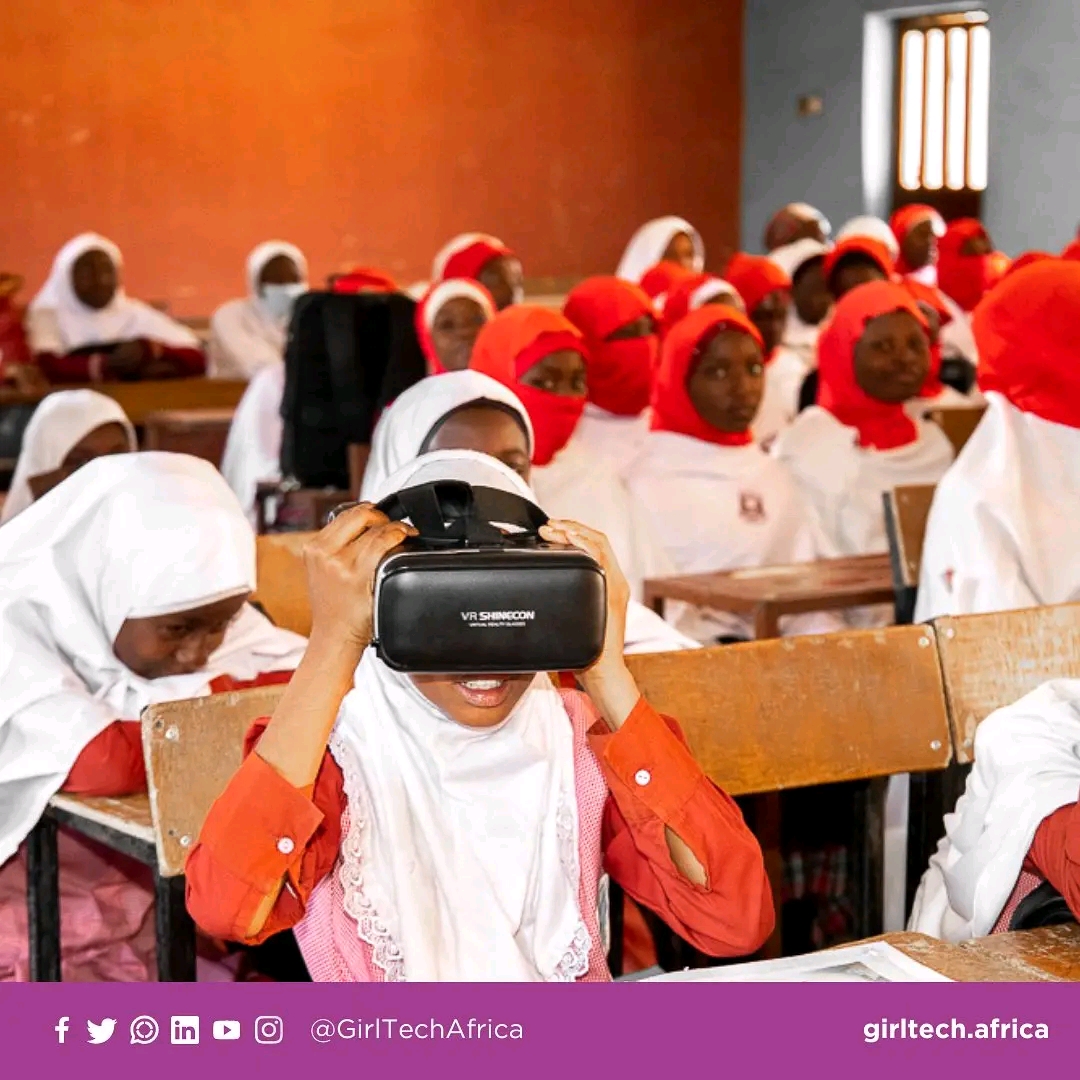GirlTech Africa, an initiative under the 1Billion project powered by Mediahooch Spaces, launched an empowering initiative in the Nigerian state of Kaduna in January 2024. Their mission is to equip young girls aged 10–16 with comprehensive technology education. The project aspires to shatter stereotypes and empower girls to excel in science, technology, engineering and mathematics (STEM) fields, with the ultimate aim of creating a future where every girl can thrive in the digital age.
Northern Nigeria faces a significant gender digital gap, where a large number of women and girls often lack access to technology and opportunities in STEM fields. A study by the Centre for Information Technology and Development (CITAD) indicated a prevailing masculine perception against female usage of the technology. In Bauchi and Kano states, 55% of men disapproved of their wives using the internet, and 61% of fathers discouraged their daughters from engaging with this technology. GirlTech Africa’s project aims to bridge this digital divide.
Maryam Haliru, a facilitator for the GirlTech Africa project, corroborated CITAD’s study, adding that only a handful of girls expressed interest in STEM fields among 200 students. This apparent indifference to STEM stems from a gap in knowledge about technology, stoked by the stereotypes establishing these fields as an exclusive preserve of men.
Mediahooch first pooled a team of tech professionals and began a campaign that mobilised secondary school girls in urban communities in Zaria. This initiative sought to provide the girls with access to technology and opportunities that could enhance their future prospects.
“We have reached out to about 30 schools. The GirlTech Africa curriculum not only teaches these young girls about technology but also teaches them about leadership and connects them with opportunities,” said Ahmad Abubakar, a co-facilitator in the project.
During the course of learning, the girls are introduced to seasoned professionals in the tech space. This mentorship is essential for the young females. The successful women in tech can inspire these girls to chart similar paths and shatter the parochial perceptions of their local communities. The mentors can also guide the students when their confidence falters.
The lessons consist of weekend classes as well as monthly webinars. This flexible learning approach ensures that girls can participate in the program while managing their schoolwork and commitments at home. “So far, we have recorded reaching out to about 850 girls,” Abubakar added.
So far, Mediahooch’s efforts have blossomed into several GirlTech clubs in several schools, Abubakar explained. The girls take training in frontend development, content creation, and search engine optimization, among others. Believed to be sought-after digital skills, these courses are seen as springboards to numerous career opportunities for these girls.
Despite the success stories, the project is beset by cultural adaptation, limited manpower and inadequate technological facilities in schools. “With Zaria being at the core of the north and encompassing people of different beliefs, we have faced hurdles, especially due to religious barriers,” Abubakar admitted.
Transportation challenges, particularly a shortage of vehicles, have hampered the project’s campaign efforts. The organizers are sometimes forced to make the difficult decision of leaving some volunteers behind.
Going forward, the project will be extended to rural communities in Zaria. “We have already started making advances in the rural communities, and this is where Community TechED comes into play,” Abubakar stated.
GirlTech Africa, part of the 1Billion project by Mediahooch Spaces, launched in Kaduna, Nigeria, in January 2024, aims to educate girls aged 10-16 in technology to bridge the gender digital divide and promote STEM careers. The initiative addresses the significant digital gap in Northern Nigeria, where societal norms often restrict women's access to technology. A study by CITAD revealed high levels of disapproval among men regarding female technology use.
The project, which includes weekend classes and monthly webinars, has reached out to around 850 girls and established several clubs in schools. It provides training in sought-after digital skills and connects participants with female tech mentors to combat stereotypes and build confidence. Despite cultural and logistical challenges, the project plans to expand into rural Zaria with the help of Community TechED.
Ahmad Abubakar, a co-facilitator, highlighted the flexibility of the curriculum and the importance of leadership training. However, challenges like cultural barriers and limited resources persist, affecting the reach and efficiency of the program.






